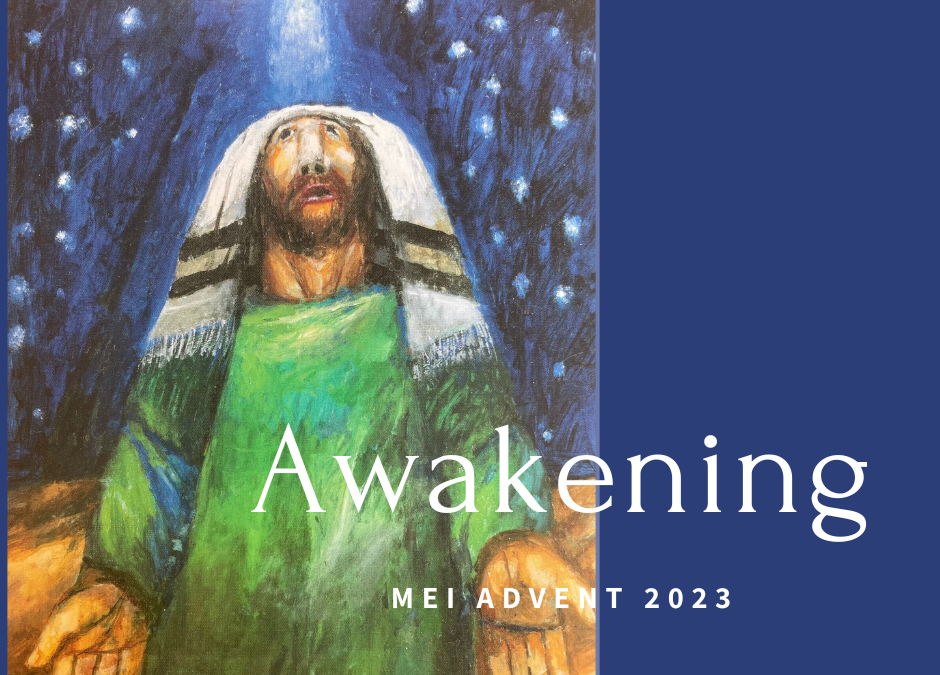Walking through the market yesterday, focused solely on accomplishing my to-do list, I caught whiffs of words I knew. A familiar Christmas song was playing in the background. It wasn’t loud, but just enough to recognize an English song in my Hungarian context. Aside from the amusement of hearing American Christmas songs, once I “tuned in” to the words, all the other noises faded into the background. In one sense, the familiar calmed my mind enabling me to focus.
I wonder if that doesn’t illustrate something monastics talk about in being “attentive” to God? There are quite a few Hebrew words translated as attentive in English that hold a wealth of meaning. The range is quite something: to be concerned about, to favor or acknowledge, to be open, listen, perceive, to observe. Another image is that of a servant attending to her Master’s needs. It’s to anticipate from a place of knowing and from careful attention (observing).
My favorite image is of a parent who is attuned to their newborn’s needs. Maybe you have had the same experience where your baby is sick and while you can accomplish mundane activities, there is a deeper awareness of the child even to the point of noticing a change in their breathing.
What might such an awareness or attentiveness look like in us for the Lord? Constant, full-focus attention does not even happen in a monastery. They pray, worship, eat, work, and even play. All the while, monastics maintain an attentiveness to the presence of God in their life, in their context, and in the world. Such attentiveness is really an expression of affection—in the same way a parent keeps an ear out for their child, or couples may be attuned to one another, our affection for our Lord draws our inner ear to listen for Him, and our eyes to notice what he is up to.
Advent reminds us of God’s call to remain awake and vigilant when circumstances may lead us to suspect what is hoped for may not come. When we lean into our first love, not just in what we might call “quiet time” but as a moment-by-moment awareness of what he might be up to, we may be surprised how much more we recognize his presence. We begin simply with the understanding that God is present. He is with us. He is now in us. (Isaiah 7:13-14; Matthew 1:22-23)
Where do you see God at work in your life? I recommend looking at the small, insignificant ways God is with you. Acknowledging and thanking God for life, breath, family, friends, work, a roof over your head, food on the table, etc., can be a great way to prime the pump. Taking time to consider how He is with you in these mundane categories is where you may begin to notice His unique way of loving you, which provides a specific way to say thank you and to express your growing affection for Him, which in turn begins to drown out all other affections.



0 Comments